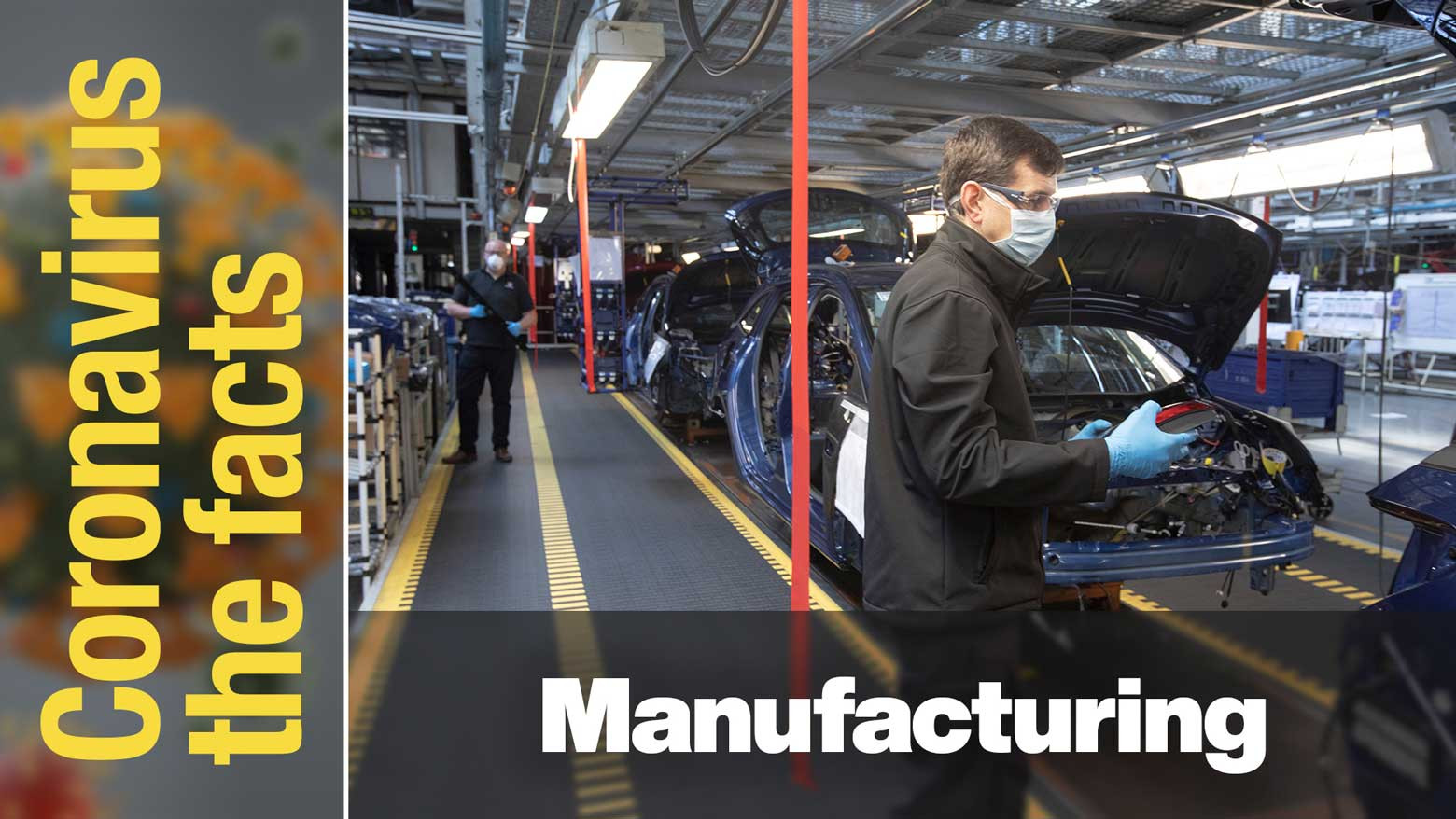This is part 48 of our coronavirus FAQ. Click here to read other installments: #Coronavirus the facts. Find the latest information and answers from experts on everything COVID-19.
Industry guidelines
We introduce guidelines that the manufacturing industry has implemented to strike a balance between preventing the spread of the virus and sustaining social and economic activity.
Keidanren guidelines
The Japan Business Federation, or Keidanren, compiled guidelines for companies to resume full-scale operations. The guidelines present various options for work, such as teleworking, staggered hours, or taking three days off a week, to reduce the concentration of staff at the office.
Office workers are asked to consider putting off non-urgent business trips. And they are being urged to hold meetings, exchange business cards, and conduct hiring interviews online.
At manufacturing sites, such as factories, operators are being advised to hold morning meetings or conduct roll calls in small numbers, and assign smaller groups to each component of the manufacturing process.
Keidanren has notified its member companies of these guidelines, and has also posted them on its website.
Companies draw up their own guidelines
Some companies have also come up with their own original guidelines for production sites where remote work is difficult.
Truck-maker Mitsubishi Fuso Truck and Bus has put in place anti-infection guidelines for its production sites. At the company's plant in Kawasaki, Kanagawa Prefecture, employees are asked to sit or stand at least 1.5 meters apart. When they need to be closer, such as when they are carrying heavy parts together, they are asked to wear face shields and face masks. All employees must change their gloves every half day, and staff locker rooms are regularly disinfected.
Mitsubishi Fuso official Baba Takashi says such measures are crucial for truck manufacturing, since automation is difficult and most of the work is done manually.
"The fight against the virus is likely to continue for some time," he says. "We want to solicit ideas from our employees and improve the work environment so we can all continue doing our jobs, and stay safe while doing so."
Since late March, Japan's leading automaker, Toyota Motor, has delayed the start of evening shifts by half an hour at ten production sites in Aichi Prefecture. This creates about 90 minutes for employees on the day shift to leave, reducing the chances of staff overlap.
Meanwhile, heavy machinery maker IHI has divided staff at its jet plane engine plant in Tokyo into two groups that report to work every other week.
And truck maker Isuzu Motors has tripled the number of morning buses to its plant in Fujisawa, Kanagawa Prefecture, so its employees do not have to commute on overcrowded buses.
